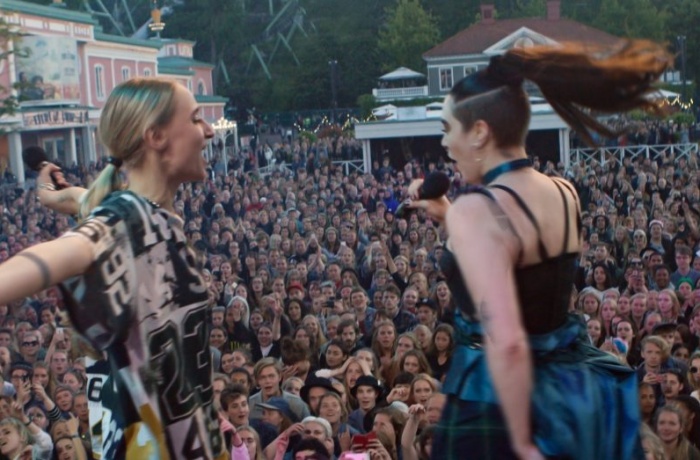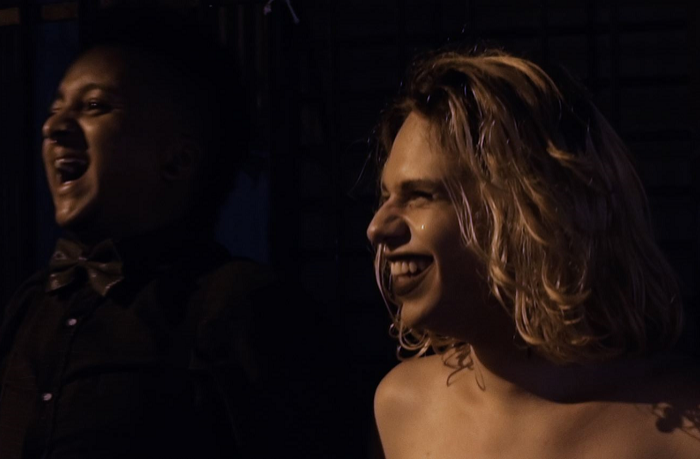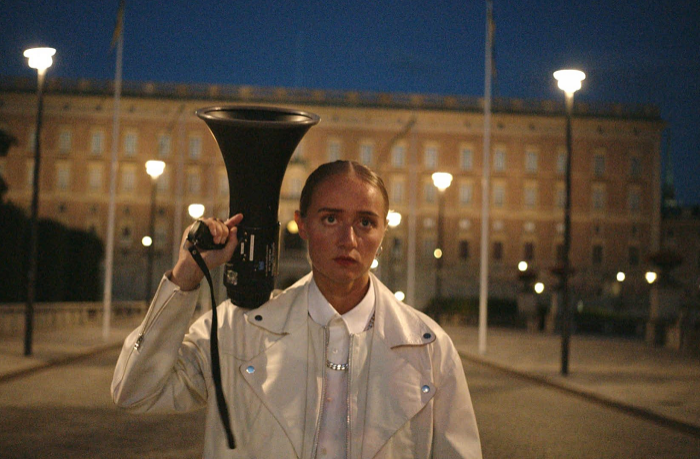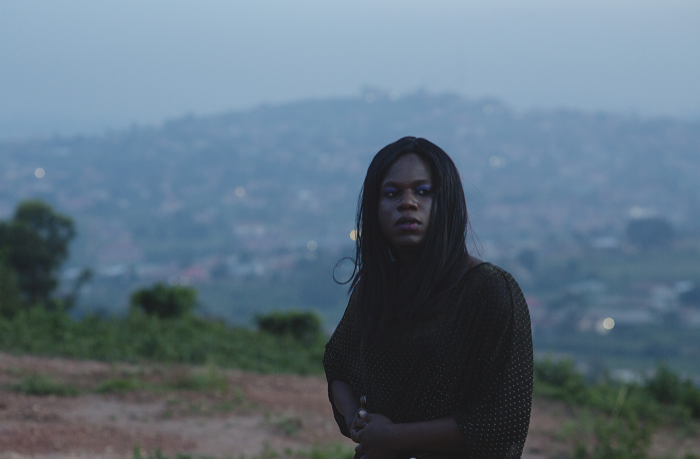
The struggle for human rights is not synchronous and homogeneous in different parts of the world. While western countries happily report successive achievements in the field of equal rights for LGBTIQ+ people (lesbians, gay men, bisexual, trannsexual, intersexual people, queers), in other parts of the world everyday life is pitiful and at some places even scary, and the lives of people who belong to this community is a daily struggle which they sometimes require merely to survive. And if the stories from first-world countries sometimes do reach the Ukrainian media, it is very rare for us to receive any information about what is happening on the global periphery. Maybe the world knows just as little about the situation in Ukraine. This year’s thematic LGBTIQ+ program of the Docudays UA festival is represented by three feature films which reflect the whole spectrum of the situation we have now. From Sweden to Uganda, from a stage star to a refugee — three stories.
My Body Is Political by Alice Riff

The film shows the everyday life of the community of Brazilian transgender people who live in a poor neighbourhood of Sao Paulo. The everyday life of transgenderness is simultaneously similar to and different from the experiences of someone who is comfortable in their body and gender from the beginning. It is the same life, with morning showers and going to work, but it involves a completely different relationship with the image of yourself in your own and other people’s eyes. Transgender transition is a change of the body, but if you live in the favelas, you cannot just change your body without great difficulties, such as changing your clothes or even getting plastic surgery. Your family does not accept these changes. The transition procedures cost considerable amounts of money. Gynaecologists are not prepared to treat someone who has a vagina but a male body, like one of the film’s protagonists. Another protagonist, on the contrary, has new papers, but has not had the surgery, and if at some point she is admitted to a hospital, the doctors can expect a surprise — but what should she expect? The film’s protagonist Fernando is holding on to his name as something that has and will always be with him, as the only thing that a person actually has, but the name in his papers is different. “It is as if I don’t have a story,” he explains to the lawyer who works on his case.
The slow and calm pace of storytelling chosen by the director only highlights the routine of everyday practices of invisibility and oppression faced by transgender people. What is shown in this film is the local norm, and it will remain the norm tomorrow and the day after tomorrow. Anyone who works or gets on the bus next to you can have their own hidden struggle.
Silvana by Olivia Kastebring, Mika Gustafson, Christina Tsiobanelis

We are used to documentaries showing us ever more new shades of suffering and injustice. But Sweden is a progressive country, and the dramatic conflict between a person and their circumstances is not about Silvana. Unlike many other documentaries, this one does not demonstrate cases of suffering, but tells a story of a personal path and love. The film is about the story of a Swedish girl Silvana Imam, who raps about feminist, lesbian and anti-racist topics. She records albums, gathers more and more fans at her concerts, starts a relationship with her stage colleague Beatrice, and participates in advocacy campaigns.
Silvana’s audience is mostly young girls, and the light emotional tone of the film will also be interesting for teenagers. If you just want to take a break from drama and ‘reboot’, this film is also for you. The camera shows reflections of the morning sun on faces, outdoor trips to connect with nature, listeners lying on the ground after a concert. Life is nice and easy. The two lovers are beautiful.
The Pearl Of Africa by Jonny von Wallström

The Pearl of Africa was a nickname given to Uganda by Winston Churchill. The film of the same title is the story of a Ugandan girl, Cleopatra, who is undergoing a transition. Uganda is a country of differences, as the film states in the beginning. But the country is not ready to accept itself as such. Indeed, homosexuality has been criminalised in the country since the British colonial rule, and since 2014 it has also been a capital offence. Any understanding of transgenderness and the problems related to it, of course, is non-existent in that country, and we cannot expect it to develop in the foreseeable future.
The young Cleopatra has a female body and male papers. And those papers make it hard for her to be herself, to live with a partner, to have the self-expression and the legal representation she wants. She lives openly with a cisgender man, and after her story was revealed on the first pages of a popular newspaper, she is forced to leave the country with her partner against her will because of the danger they face. She only starts to demand that her government change her documents to female when she has already emigrated. Despite the troubles, Cleopatra is supported by her partner Nelson, and in general the narrative and the visual imagery in the film are constructed in a way that makes it, to a great extent, a love story — not in a time of plague, but in a time of homophobia. And so the film would be melodramatic if it was not a documentary.
Text: Hanna Hrytsenko
Header photo: 'Silvana' by Olivia Kastebring, Mika Gustafson, Christina Tsiobanelis